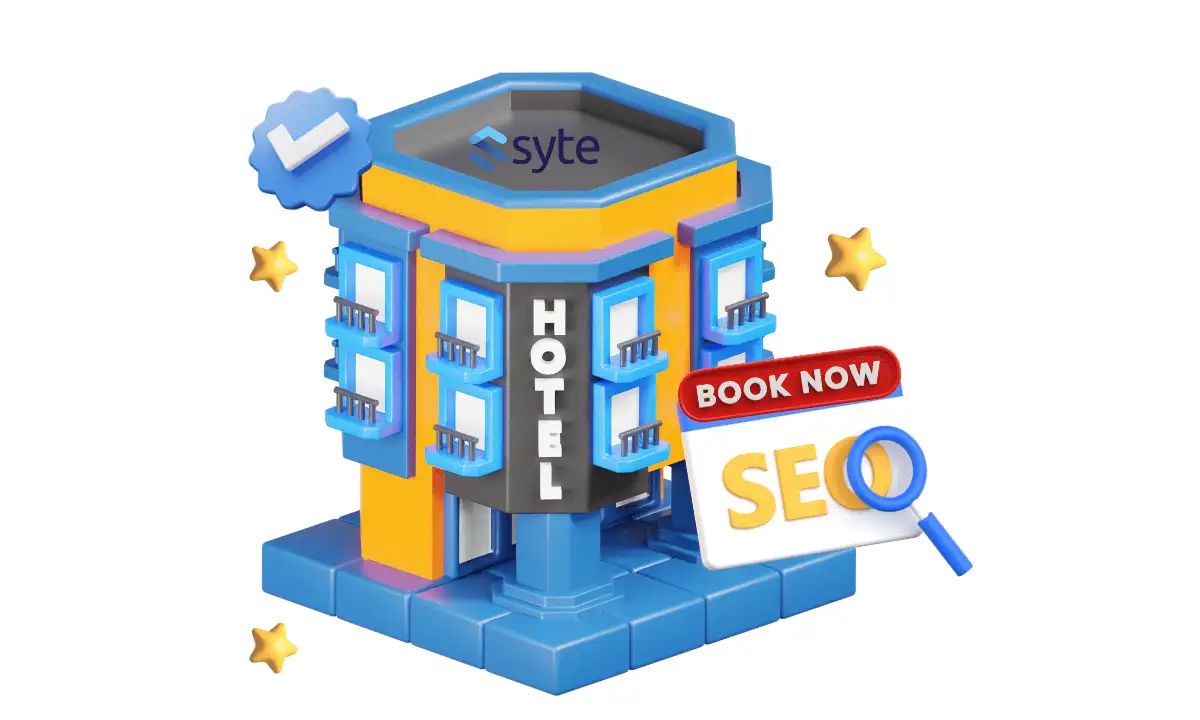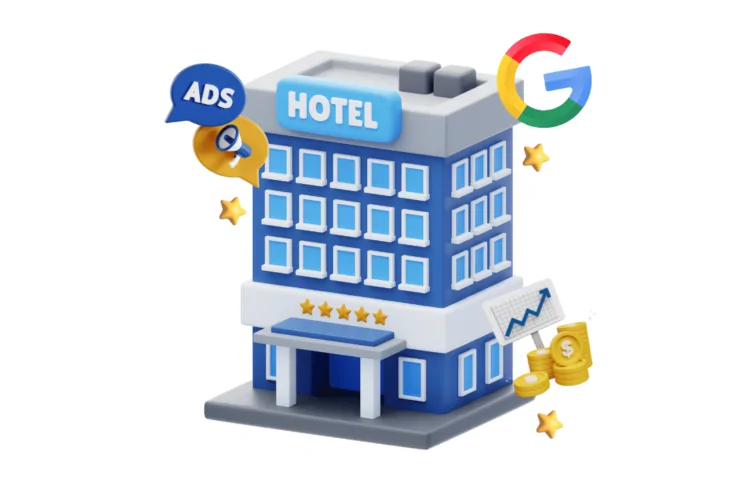In today’s bustling hospitality arena, standing out online is not just useful—it’s a must. With so many choices for travellers, hotels need to make sure they’re easy to find online. Effective Search Engine Optimization (SEO) can help a hotel become more visible on the web, attract more guests, and ultimately secure more direct bookings. In this guide, we’ll explore some key strategies, trends, and insights that can help hotels improve their SEO efforts and gain a competitive advantage.
Grasping the Basics of Hotel SEO
Identify Your Target Audience
A successful SEO strategy starts with knowing your audience inside and out. Understanding who might want to stay at your hotel is crucial. This involves digging into:
- Who Are They?: Discover the age, gender, location, and income levels of your ideal guests.
- What Do They Like?: Learn about the amenities and experiences that matter most to your guests.
- What Are They Searching For?: Figure out if they’re hunting for information, finding locations, or ready to make a booking.
Conduct Smart Keyword Research
Keyword research lays the groundwork for any SEO strategy. Focus on words and phrases that are both descriptive and unique to your hotel’s location and services. Here’s how:
- List Search Terms: Use a mix of general and specific (long-tail) keywords.
- Use Tools: Employ tools like Google Keyword Planner or SEMrush for insights.
- Spy on the Competition: Check out which keywords your competitors are using.
Steer Clear of Keyword Stuffing
Weave the keywords naturally into your website’s content. Stuffing keywords unnaturally can lead to penalties from search engines. Instead, aim for:
- Natural Placement: Incorporate keywords fluidly into your content.
- Content Quality: Prioritise engaging and informative content over a high keyword count.
- User Experience: Make sure your content is easy to read and relevant.
Keyword Research and Optimisation
Optimise Keywords Throughout Your Website
Once you’ve pinpointed your keywords, it’s time to use them wisely across your site:
- Page Titles (Meta Titles): Keep them clear, descriptive, and include your main keyword.
- Meta Descriptions: Summarise the page’s content in an enticing way to encourage clicks.
- URLs: Make them short, descriptive, and use hyphens to separate words.
Create Enticing Page Titles and Descriptions
Page titles and meta descriptions are the first impressions users get of your site from search engines. Ensure they’re captivating by:
- Being Clear: Let visitors know what the page is about.
- Using Keywords: Integrate the main keyword naturally.
- Adding a Call to Action: Use inviting language to urge users to click.
On-Page SEO and Content Strategy
Enhance Website Content and Structure
On-page SEO focuses on making your hotel’s website accessible and understandable to search engines. Pay attention to:
- Keeping Content Fresh: Update content regularly to maintain interest.
- Diverse Content Types: Use blogs, local guides, and FAQs to provide value.
- Great User Experience: Design your site for easy navigation and visual appeal.
Format Content for Easy Reading
Content should be easy to read and navigate. This means:
- Using Headings: Use tags like H1, H2, and H3 to organise content.
- Short Paragraphs: Break content into bite-sized sections.
- Strategic Keyword Placement: Insert keywords in important spots, like the early part of your text.
Local SEO and Google My Business
Optimise Your Google My Business Profile
Local SEO plays a big role for hotels. Start by improving your Google My Business listing:
- Add Photos: Highlight the best features of your hotel.
- List Amenities: Show what makes your hotel unique.
- Encourage Reviews: Respond to reviews to foster trust and engagement.
Develop Locally-Focused Content
Create content that appeals to local searches to strengthen your local SEO:
- Write Area Guides: Offer insights on local attractions and events.
- Share Event Calendars: Keep guests updated on happenings nearby.
- Build Local Backlinks: Partner with local travel and tourism sites for links.
Search Intent and User Experience
Grasp Different Search Intent Categories
Align your content to match why your audience is searching:
- Informational: Write detailed guides and tips.
- Navigational: Help visitors find specific pages efficiently.
- Transactional: Motivate bookings with special offers and deals.
Improve User Experience
A well-organised, easily navigable site boosts engagement and conversion rates:
- Clear CTAs: Use calls to action like “Book Now” or “Check Availability.”
- Optimise Images: Ensure they load quickly and look great.
- Mobile-Friendliness: Make sure your site works smoothly on mobiles.
Link Building and Off-Page SEO
Build Authority with Links
Link building is an essential SEO strategy. Focus on:
- Internal Links: Improve site navigation and help search engines map your site.
- External Links: Gain credibility with links from reliable sites.
- Guest Posting: Write articles for others to enhance your expertise and visibility.
Use Link-Building Techniques
Strengthen your hotel’s credibility and rankings with these strategies:
- Content Marketing: Create shareable content that gets links.
- Leverage Relationships: Work with local travel websites and tourism experts.
- High-Quality Links: Prefer quality over quantity for the best outcomes.
Content That Converts
Create Content with Conversion in Mind
While attracting traffic is important, turning visitors into bookings is crucial:
- Room Bookings: Promote special deals and offers.
- Newsletter Sign-Ups: Encourage guests to stay informed.
- Contact Form Submissions: Make it simple for guests to get in touch.
Match Content Type with Search Intent
Boost conversion potential by matching content with search intent:
- Research Phase: Use blogs to draw in potential guests.
- Booking Phase: Provide deals that prompt bookings.
- Set Expectations: Align content with your business goals for better results.
Emerging Trends and Best Practices
Keep Up with Google’s AI-Powered Search
Stay ahead by adapting to new trends:
- Conversational Search: Optimise for voice search and natural language queries.
- Featured Snippets: Aim for prime SERP positions with structured data.
- Continuous Monitoring: Keep abreast of algorithm updates and user behaviour changes.
Conclusion
Successful hotel SEO is a layered strategy involving keyword research, on-page optimisation, local SEO, understanding search intent, link building, and creating content that results in bookings. Aligning these components with current trends and best practices, hotels can significantly improve their online visibility, attract more guests, and boost direct bookings.
Incorporating local-specific content, optimising for featured snippets, and ensuring a smooth user experience are key to a thriving SEO strategy. Constantly monitoring and adapting to changes in search engine algorithms and user behaviours is crucial to staying competitive in the hospitality sector.
By concentrating on these strategies, hotels can not only improve their online presence but also build trust with potential guests, leading to increased bookings and revenue.
Ready to enhance your hotel’s digital footprint and drive more direct bookings? Partner with Syte, a leading expert in hospitality digital marketing. Contact us today to find out how we can support your digital marketing success.



